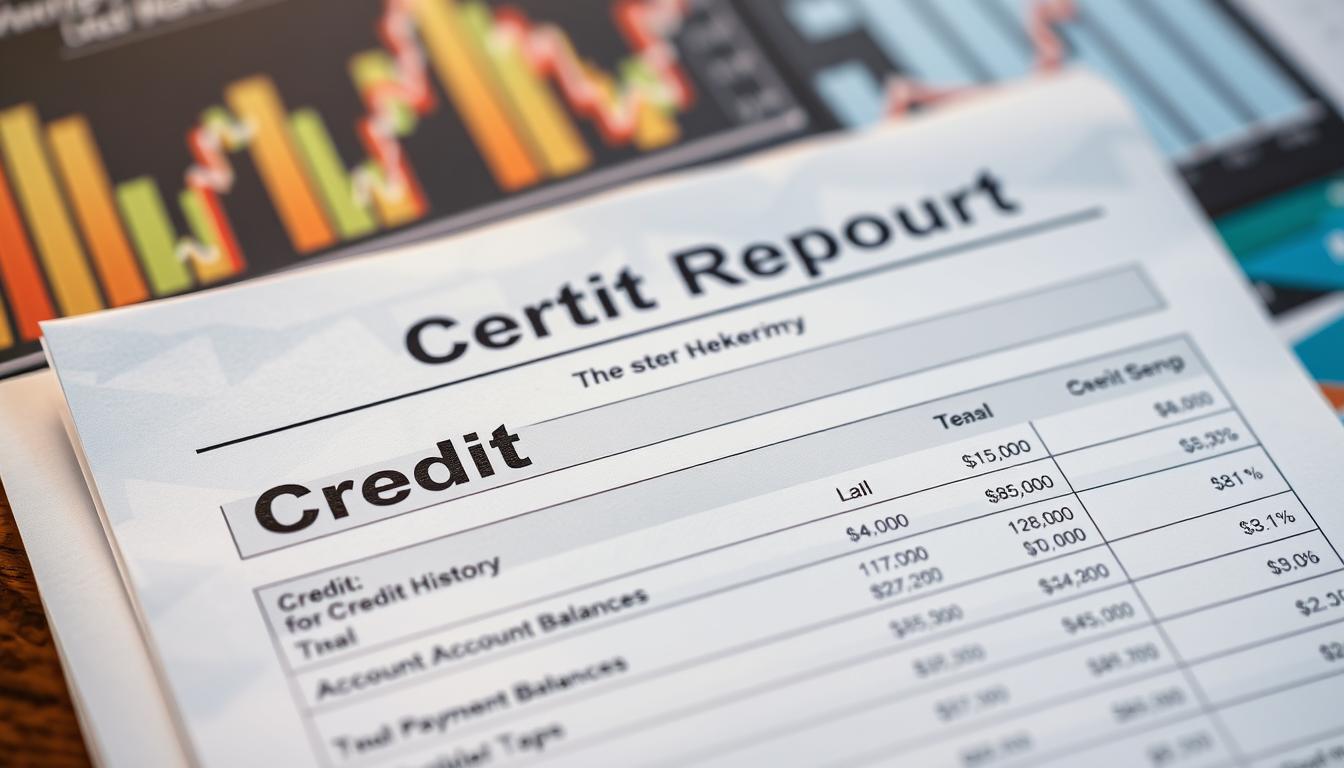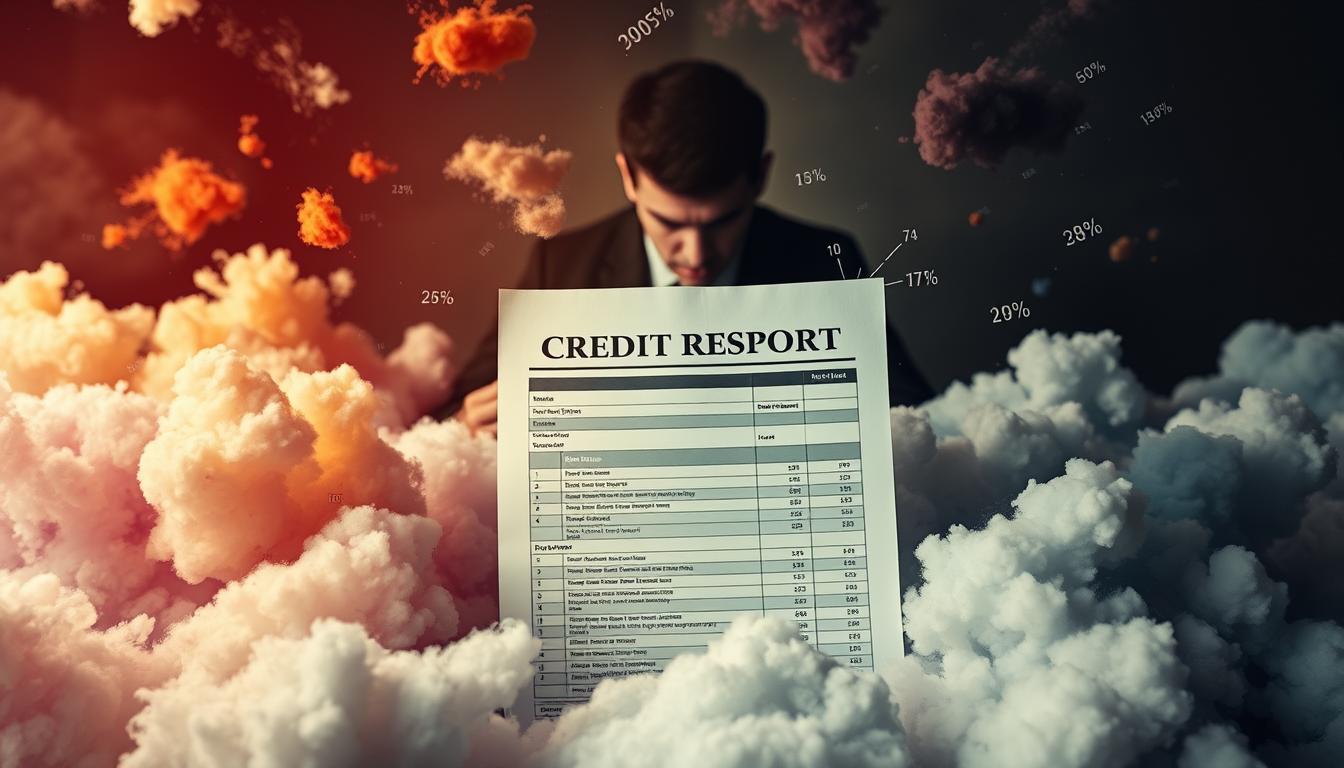A healthy credit profile is crucial for many aspects of life. It affects your ability to get loans, rent apartments, and even land jobs. Accurate debt reporting to credit bureaus is key to maintaining good credit.
This guide explores the world of credit reporting in detail. You’ll learn about credit bureaus, debt reporting, and how they impact your finances. We’ll help you navigate these complex topics with ease.
Key Takeaways
- Understand the role of credit bureaus in debt reporting and your credit profile
- Discover the consequences of unpaid debt on your credit score and credit report
- Learn how to dispute inaccurate debt information and protect your financial future
- Explore the statute of limitations on debt and your rights when dealing with debt collectors
- Maintain a positive payment history and leverage credit repair services to improve your creditworthiness
Understanding Credit Bureaus and Debt Reporting
Credit bureaus collect and maintain information about people’s credit histories. Experian, Equifax, and TransUnion are key players in debt reporting. They compile data from creditors and generate credit reports and credit scores.
These reports and scores are crucial for lending decisions. They help lenders assess a person’s creditworthiness.
What are Credit Bureaus?
Credit bureaus are companies that gather data on credit histories. They collect information from lenders, credit card companies, and debt collectors.
This data includes payment patterns, outstanding debts, and credit use. They use this info to create comprehensive credit reports for consumers.
The Role of Credit Bureaus in Debt Reporting
Credit bureaus collect and organize data from creditors and lenders. This includes details about loans, credit card balances, and payment histories.
They also track any unpaid or delinquent debts. Using this information, credit bureaus calculate a person’s credit score.
| Credit Bureau | Key Functions |
|---|---|
| Experian | – Collects and maintains consumer credit data – Calculates credit scores – Provides credit reports to lenders and consumers |
| Equifax | – Gathers and organizes consumer credit and financial data – Generates credit reports and scores – Offers consumer credit monitoring and identity protection services |
| TransUnion | – Collects and manages consumer credit information – Develops credit scores and reports – Provides credit monitoring and identity theft protection tools |
Knowing how credit bureaus handle debt reporting can help you manage your finances better. It allows you to maintain a healthy credit report and credit score.

Reporting Debt to Credit Bureau
Creditors may report unpaid debts to credit bureaus. This can greatly affect a person’s credit score and financial health. The creditor provides details about the overdue account to the bureaus.
Debt reporting is crucial for credit assessment. It helps lenders make informed decisions about loans. However, incorrect reporting can harm one’s credit history and finances.
Key Considerations in Debt Reporting
- Timeliness of reporting: Creditors and debt collectors must report delinquent accounts in a timely manner to ensure the information is accurate and up-to-date.
- Accuracy of information: The data reported to credit bureaus, such as the amount owed and the payment history, must be accurate and consistent across all credit reports.
- Dispute resolution: Individuals have the right to dispute any inaccurate or incomplete information reported to the credit bureaus, and the credit bureaus are required to investigate and correct any errors.
Knowledge of debt reporting helps protect your credit. You can take steps to ensure your credit reports are accurate. This safeguards your financial health.

| Key Information | Details |
|---|---|
| Reporting Timeframe | Creditors and debt collectors must report delinquent accounts in a timely manner, typically within 30-60 days of the missed payment. |
| Reported Information | The amount owed, the date of the last payment, and the current status of the account. |
| Impact on Credit Score | Delinquent accounts reported to credit bureaus can significantly lower an individual’s credit score, making it more difficult to obtain credit, loans, or even housing in the future. |
Debt reporting greatly impacts your financial health. Understanding this process is key. It helps you maintain good credit and a positive payment history.
Consequences of Unpaid Debt on Credit Reports
Unpaid debt can seriously harm your credit report and score. It can damage your creditworthiness, making it harder to get loans or find housing. Your ability to secure credit or even land a job may be affected.
Impact on Credit Scores
Delinquent accounts and unpaid debts can drastically lower your credit score. This makes it tough to get good interest rates on loans or credit cards. A poor credit score can also make renting or buying a home difficult.
Some jobs require a good credit history, so your career options might be limited. Your financial opportunities could shrink due to a low credit score.
Debt Collection Efforts
Unpaid debts may lead to aggressive collection efforts. You might face persistent calls from collection agencies or even legal action. These can further damage your financial standing and credit reputation.
| Impact of Unpaid Debt | Consequences |
|---|---|
| Credit Score Damage | Difficulty obtaining credit, loans, or housing |
| Debt Collection Efforts | Harassment, legal action, and further credit damage |
Address unpaid debts quickly to minimize negative impacts on your credit report. Taking action can protect your financial well-being. Consider negotiating with creditors or seeking debt management help to improve your situation.
Disputing Inaccurate Debt Information
You have the right to dispute inaccurate debt information on your credit report. This process involves contacting credit bureaus and providing evidence. Correcting errors can improve your credit score and financial health.
Steps to File a Dispute
Disputing inaccurate debt information is straightforward, but requires following the right steps. Here’s what you need to do:
- Identify the specific item on your credit report that you believe is inaccurate. This could be an incorrect debt amount, a debt that doesn’t belong to you, or a debt that has been reported incorrectly.
- Gather any supporting documentation or evidence that you have to support your claim. This could include payment receipts, billing statements, or other documents that prove the information is incorrect.
- Contact the credit bureau(s) that are reporting the inaccurate information and initiate a dispute. You can do this by phone, by mail, or online through the credit bureau’s website.
- Provide the credit bureau(s) with your evidence and a clear explanation of why the information is inaccurate.
- Wait for the credit bureau(s) to investigate your dispute. They have 30 days to complete the investigation and provide you with a response.
- If the credit bureau(s) determines that the information is indeed inaccurate, they will update your credit report accordingly. If they find that the information is accurate, they will provide you with an explanation.
These steps will help you dispute inaccurate debt information on your credit report. You can work towards maintaining a healthy credit profile by following them.

The Statute of Limitations on Debt
The statute of limitations is vital in debt collection. It sets the legal time limit for creditors to pursue debt collection. This timeframe varies by state and debt type.
Understanding the statute of limitations empowers consumers. It helps defend against collection efforts and removes expired debts from credit reports. This knowledge protects individuals from unfair debt collection practices.
Statute of Limitations by Debt Type
Debt type affects the statute of limitations. The timeframe usually ranges from 3 to 10 years, with some exceptions:
- Credit card debt: 3-6 years
- Medical debt: 3-6 years
- Personal loans: 3-10 years
- Mortgage debt: 3-15 years
These timeframes can vary by state. Research your state’s specific statute of limitations for your debt type.
Protecting Your Credit Reports
The statute of limitations helps manage credit reports. After it expires, creditors can’t legally pursue the debt. You can dispute expired debts on your credit report.
This can improve your credit score and financial standing. It’s a powerful tool for maintaining good credit.

“Understanding the statute of limitations on debt can be a powerful tool in protecting your financial well-being and credit history.”
The statute of limitations is crucial for consumers. Knowing time limits for various debts helps protect against unfair practices. It also aids in maintaining a healthy credit profile.
Dealing with Debt Collection Agencies
Understanding your rights is vital when facing debt collectors. The Fair Debt Collection Practices Act (FDCPA) protects consumers from unfair tactics. This knowledge helps you handle debt collection more effectively.
Understanding Your Rights
The FDCPA prohibits debt collectors from using abusive or deceptive practices. This law sets limits on how and when they can contact you.
- Contacting consumers at inconvenient times or places
- Using profane or threatening language
- Misrepresenting the amount or status of the debt
- Continuing to contact a consumer after they have requested the agency to stop
Consumers can ask for debt verification or dispute its validity. These rights help protect you from unfair treatment during the collection process.
“Knowing your rights when dealing with debt collection agencies is crucial to ensuring fair and ethical treatment.”
Debt collection shouldn’t violate your rights. Stay informed and assertive to manage your finances effectively. This approach helps shield you from unlawful debt collection practices.
Credit Repair Services and Debt Validation Letters
Credit reporting can be tricky. People often struggle to keep their credit info correct and positive. Credit repair services and debt validation letters can help improve credit standings.
Credit repair services help find and dispute wrong info on credit reports. They work to keep credit scores accurate. Good credit is key for loans, jobs, and housing.
Debt validation letters let people ask debt collectors for proof. If collectors can’t prove the debt, it may be removed from credit reports. This can boost financial standing.
These tools help make credit info more accurate. They can lead to a stronger financial future. Disputing errors and validating debts can build a healthy credit profile.
Use these strategies carefully and legally. Do your homework and seek guidance. This ensures effective and ethical use of these tools. They can create lasting improvements in your finances.
Maintaining a Positive Payment History
Consistently paying your credit accounts on time is key to a strong credit profile. This includes credit cards, loans, and other debts. Responsible financial behavior can boost your credit scores and unlock better lending terms.
A positive payment history is vital to credit bureaus and lenders. It showcases your reliability as a borrower. This can lead to improved credit reports and higher credit scores.
Better scores can result in lower interest rates and higher credit limits. They also open doors to a wider range of financial products and services.
- Make all payments on time, every time. Set up automatic payments or payment reminders to avoid late or missed payments.
- If you’re having trouble making a payment, contact your lender or creditor as soon as possible to discuss options like payment plans or temporary hardship accommodations.
- Monitor your credit reports regularly to ensure that all account information is accurate and up-to-date. Dispute any errors or inaccuracies immediately.
- Limit the number of new credit applications you submit, as each one can result in a hard inquiry that may temporarily impact your credit scores.
Prioritizing a positive payment history is crucial for a strong credit profile. It can benefit you for years to come. Your financial future depends on the habits you form today.
“Consistent, on-time payments are the foundation of a healthy credit profile. It’s one of the most important factors in determining your credit scores.”
Conclusion
Reporting debt to credit bureaus is crucial for effective financial management. Understanding credit bureaus’ role and unpaid debt’s consequences helps individuals control their credit profiles. Knowing how to dispute inaccurate information can secure a brighter financial future.
Maintaining a positive payment history is key to a strong credit profile. Leveraging credit repair services can help improve your creditworthiness. Asserting your rights when dealing with debt collectors is also important.
These actions empower individuals to navigate credit reporting complexities confidently. By applying these principles, you can work towards your financial goals. This knowledge provides a solid foundation for long-term financial stability and success.

